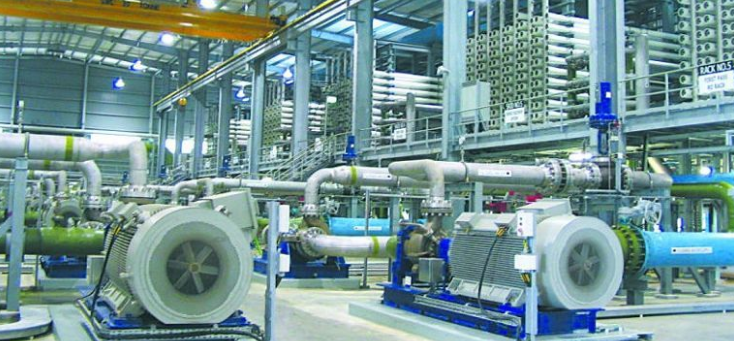Singapores' 4th Desalination Plant
Published on by Water Network Research, Official research team of The Water Network in Government
Keppel Infrastructure Holdings will design, build, own and operate Singapore's fourth desalination plant, national water agency PUB announced.

The company was chosen as the preferred bidder after an open tender that attracted 16 bids from seven local and international bidders, PUB said in a statement.
The plant is expected to commence operations in 2020 and will add another 30 million gallons of water (about 137,000 cubic metres) per day to the nation’s water supply.
Under the arrangement with PUB, Keppel will supply water to PUB for a 25-year concession period at a first-year price of S$1.07867 per cubic metre.
"AN ICONIC PROJECT"
Located in Marina East, the plant will be the first in Singapore with the ability to treat sea water, and fresh water from the Marina Reservoir, by using reverse osmosis and other advanced membrane technology, Keppel Infrastructure said in a separate statement.
Keppel Seghers, the environmental technology arm of Keppel Corporation, will undertake the turnkey construction and commissioning of the project, it added.
Keppel Infrastructure Chief Executive Officer Ong Tiong Guan called the planned desalination plant an "iconic project" due to its ambitions of treating both reservoir and sea water.
"This project affirms Keppel Infrastructure's capabilities to create value and offer innovative and competitive solutions for environmental infrastructure essential for sustainable urbanisation."
PUB said the plant will help to strengthen Singapore’s drought resilience as well as enhance the reliability of water supply for the city and eastern Singapore areas by providing an alternative supply to these areas.
According to PUB’s Deputy Chief Executive of Policy and Development Chua Soon Guan, desalinated water is an important part of Singapore's water supply portfolio.
"As a source independent of weather fluctuations, it is resilient against the vagaries of climate change and bolsters the reliability of our water supply against prolonged periods of dry spells and droughts," he explained.
Mr Chua added that the agency has plans to expand Singapore’s desalination capacity to meet up to 30 per cent of the country's future water needs. Currently, 25 per cent of Singapore's water demand is met by desalination, with the rest of the supply coming from local catchments, imported water from Johor and NEWater.
The transaction, which Keppel Infrastructure and PUB are expected to enter into by January next year, is not expected to have a material impact on the net tangible assets or earnings per share of Keppel Corporation for the current financial year, according to Keppel Infrastructure.
Source: Channel News Asia
Media
Taxonomy
- Treatment
- Desalination
- Thermal Desalination
- Multi-Stage Flash Distillation
- Electrodialysis
- Energy Efficiency
- Capacitive Deionization
- Low Temperature Distillation
- Long Tube Vertical Distillation
- Brine Discharge Modeling & Analysis
- Operation & Maintenance
- Equipment & Machinery
- Sustainable Desalination
- Desalination Pre-treatment
- Electrochemical Sensors
- Drinking Water
- water treatment
- Plant Engineering
- Desalination